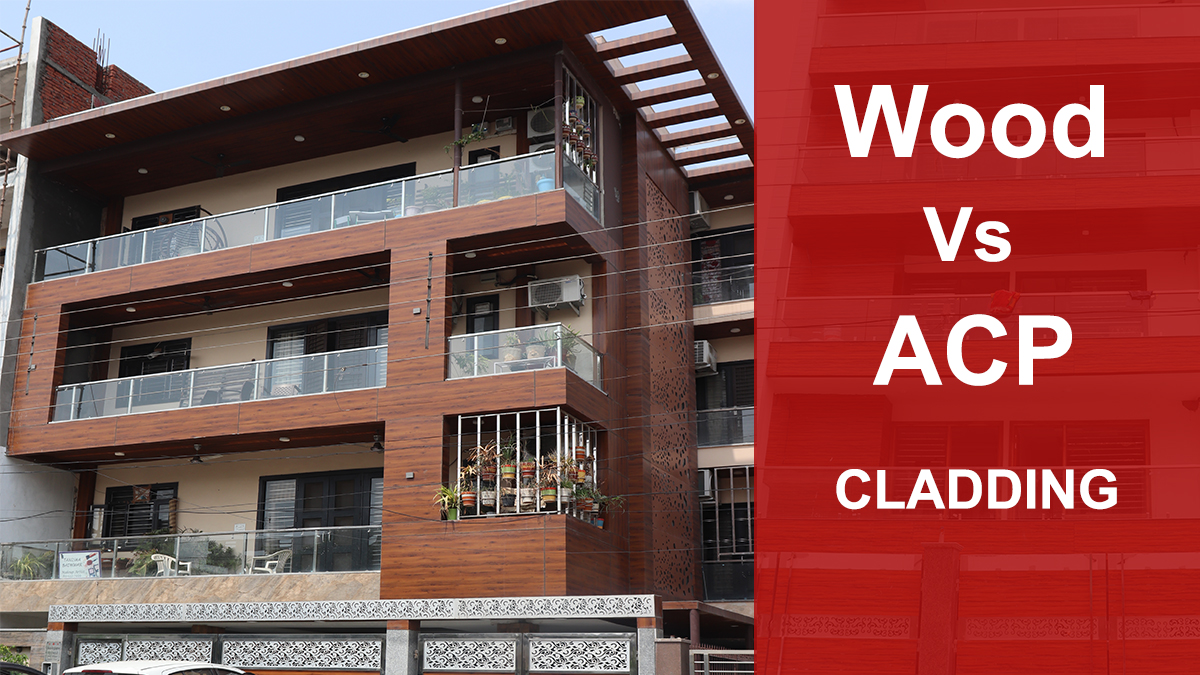

Aluminum composite panels (ACP) offer several advantages over wood when it comes to facades. Here are some reasons why ACP is often considered a better material for facades:
1. Durability and Weather Resistance:
ACP is highly durable and weather-resistant. It is designed to withstand harsh environmental conditions such as rain, wind, UV radiation, and temperature fluctuations without warping, rotting, or deteriorating. In contrast, wood can be prone to rot, decay, and damage from moisture and weather exposure.
2. Low Maintenance:
ACP requires minimal maintenance compared to wood. It does not require regular sealing, staining, or painting to maintain its appearance and structural integrity. A simple cleaning routine with mild detergent and water is usually sufficient to keep ACP facades looking fresh and attractive.
3. Fire Resistance:
Aluminum composite panels have inherent fire-resistant properties, making them a safer choice for facades. Most ACPs have fire-retardant cores that meet fire safety standards and regulations. In contrast, wood is combustible and may require additional fire-retardant treatments or protective coatings.
4. Design Flexibility:
ACP offers a wide range of design options and versatility. It can be easily shaped, cut, and formed into various sizes and dimensions, allowing for intricate and complex facade designs. ACP panels are available in a variety of colors, finishes, and textures, providing architects and designers with extensive creative freedom.
5. Lightweight and Easy Installation:
ACP is lightweight, which makes it easier and more cost-effective to transport, handle, and install compared to wood. The lightweight nature of ACP also reduces the load on the building structure. ACP panels are often installed using simple fixing systems, further streamlining the installation process.
6. Longevity and Sustainability:
ACP is known for its longevity, ensuring that facades maintain their aesthetics and performance over time. It is a sustainable choice as it is recyclable and can be repurposed at the end of its life cycle. Additionally, ACP production processes consume fewer resources compared to wood, making it an eco-friendly option.
7. Resistance to Pests and Decay:
Unlike wood, ACP is not susceptible to pests such as termites or wood-boring insects. It does not rot or decay, ensuring long-term structural integrity and reducing the need for frequent repairs or replacements.
8. Cost-Effectiveness:
ACP can be a cost-effective option for facades, considering its durability, low maintenance requirements, and ease of installation. While wood may initially have lower upfront costs, the long-term expenses associated with maintenance, repairs, and replacements can make ACP a more economical choice.
It’s important to note that the suitability of ACP or wood for a specific facade application depends on factors such as the project requirements, design preferences, local regulations, and environmental considerations. Consulting with architects, engineers, and building professionals can help determine the best material choice for a particular project.